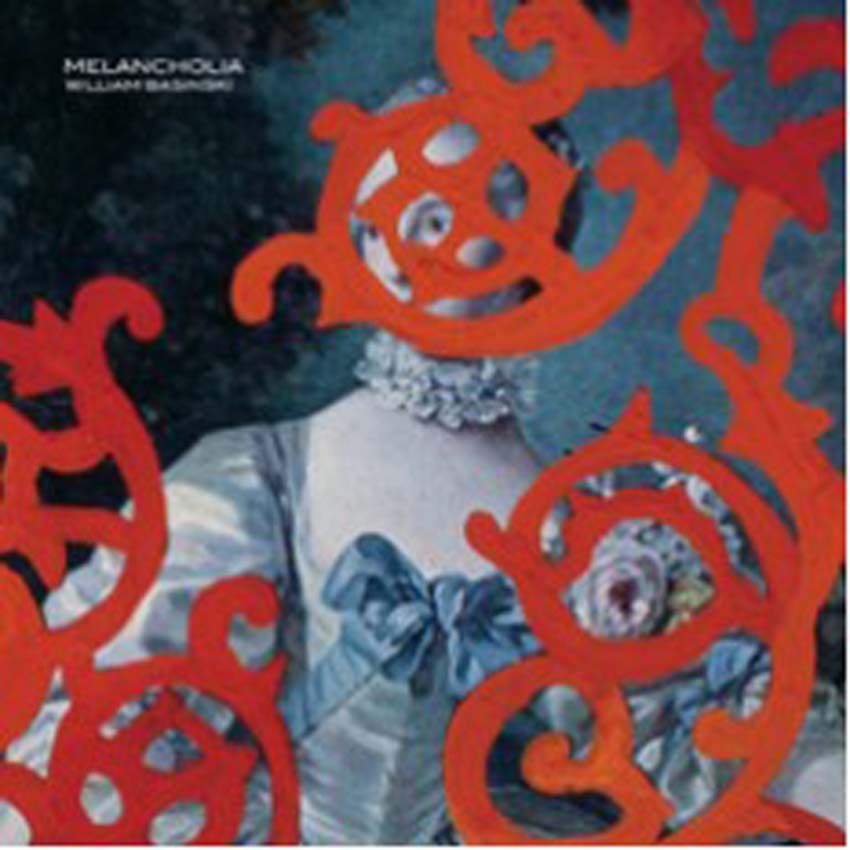 Newly released on vinyl for the first time (now with actual cover art!), this aptly titled 2003 album shares a surprising amount of common ground with last year's Nocturnes.  The key difference is that Melancholia is broken up into 14 discrete quasi-impressionist piano vignettes.  While history has shown that Basinski is primarily at his best with more longform work, this is still a likable and somewhat fascinating effort that occasionally offers up a few rather unique sci-fi-meets-Claude-Debussy moments.
Newly released on vinyl for the first time (now with actual cover art!), this aptly titled 2003 album shares a surprising amount of common ground with last year's Nocturnes.  The key difference is that Melancholia is broken up into 14 discrete quasi-impressionist piano vignettes.  While history has shown that Basinski is primarily at his best with more longform work, this is still a likable and somewhat fascinating effort that occasionally offers up a few rather unique sci-fi-meets-Claude-Debussy moments.
Like many of William's releases, Melancholia has its roots in tapes that he made in the '80s, though its neo-classical feel is quite a bit different from most of the other Basinski albums that I have heard.  That classical bent is most pronounced in the extremely similar Parts I and IX, which combine a brief snatch of sadly descending piano with mournful bowed strings…and something that sounds like a heavily reverbed and warped recording of a birdsong.  Aside from being almost interchangeable in every way, the two pieces are noteworthy for highlighting Melancholia's most bizarre feature: it is quite possible that this entire album was spawned from less than a minute of recorded music.  Many motifs repeat themselves, each piece is built upon just one repeating theme, and few of William's loops ever last longer than 5 or 10 seconds.
For me, that is what makes Melancholia a compelling release: it is not nearly as absorbing or hypnotic as his later work, but William inventively makes a lot of something out of virtually nothing, even if it does all feel like a series of sketches.  Admittedly, the best pieces are probably the aforementioned two Debussy-meets-howling-space-monkey works, as they sound like nothing else that I have heard.  However, a number of other pieces offer significant rewards if listened to closely enough, particularly Part VIII, which obliterates anything recognizably piano-like to leave only a shimmering, crackling, and undulating haze.  Several other pieces perform similar feats with a fair amount of success, such as Part II, which enhances its languorous melody with a ghostly afterimage.
Despite all those appealing traits, Melancholia is definitely not one of William's stronger efforts, primarily because it seems like Basinski is recycling so many of his ideas without going anywhere particularly fresh with them: a number of pieces seem virtually identical to one another.  Also, as mentioned earlier, William's particular strain of genius tends to only be apparent when he allows himself plenty of time to stretch out.  The far more recent "Nocturnes" is the most illuminating comparison in this case, as Basinski takes a similarly brief and basic piano theme and stretches it into 40-minutes of subtly shifting, mesmerizing beauty.  On Melancholia, William was clearly still trying to figure out the possibilities of that approach, keeping his experiments quite short.  While it is still an enjoyable album and an interesting window into Basinski's evolution, Melancholia is probably only worth investigating for those who have already plunged into his major albums and crave still more.
 
 
Read More

